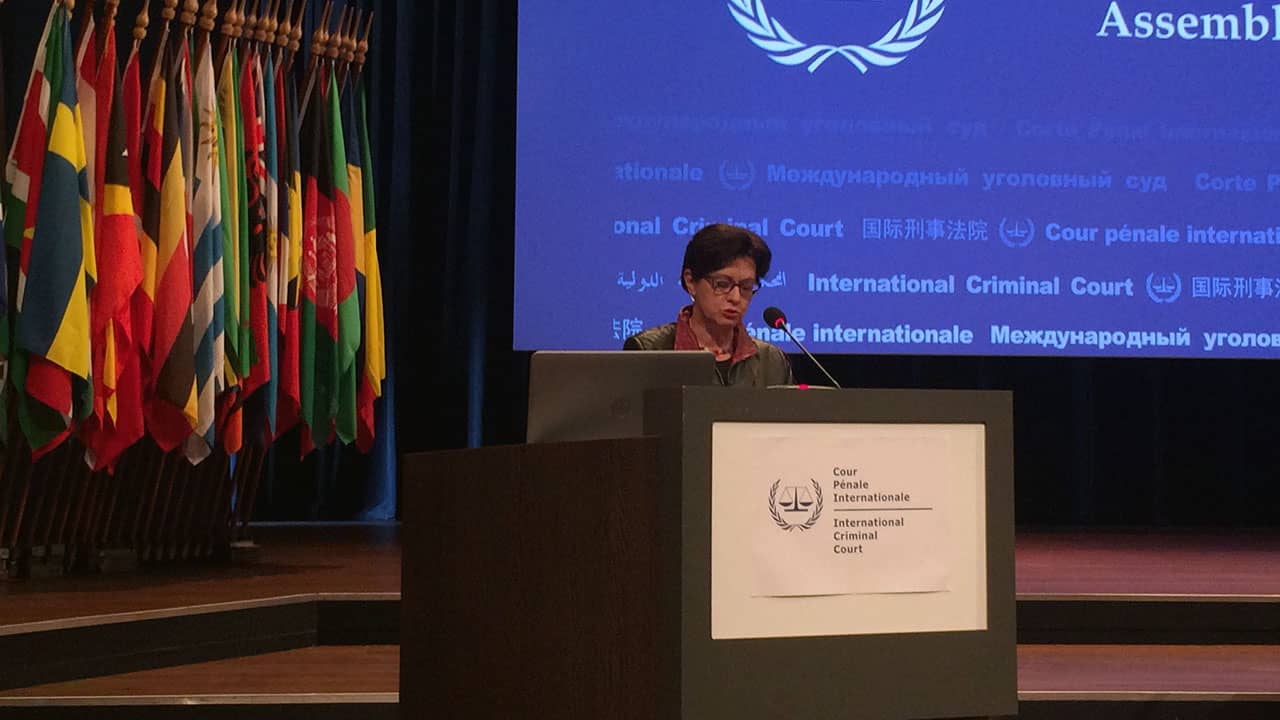In August 2008, in advance of an International Committee of the Redd Cross seminar on the ICC, Dr. Allan Marat, then Papua New Guinea’s Attorney General and Minister of Justice, was quoted in the media as supporting the ICC.
In Sydney, in July 2011, then ICC President Song met bilaterally with PNG Secretary of the Department of Justice Lawrence Kalino on the margins of the Commonwealth Meeting of Law Ministers. Justice Kalinoe indicated his willingness to prioritize the Rome Statute. On 28 October 2011, President Song met with UN Ambassador Robert Guba in New York. The Ambassador was very optimistic about prospects for accession and said he would contact the Legal Secretary to get the process moving. This contact led to the transmission of the Commonwealth Model Law, which could have potentially moved the dossier of the ICC forward.
During the ICC Pacific Outreach Roundtable (2012), the representative of PNG indicated that the Government was committed to strengthening the law relating to human rights and has already invested significant resources in strengthening its international crime cooperation laws, a key step toward becoming a State Party to the Rome Statute. Given these policy commitments, the recognition that PNG is part of the international community, and the importance attached to international cooperation, the view expressed was that the accession to the Rome Statute would fit within the broad spectrum of the Government’s policies.
| Signature, Ratification of/Accession to the Rome Statute of the ICC | |
|---|---|
| Signature Date: | No. Papua New Guinea has neither signed nor acceded the Rome Statute. |
| Ratification Date: | |
| Amendments to the Rome Statute | |
|---|---|
| Ratification of the Kampala Amendment to Article 8 of the Rome Statute on war crimes [poison and expanding bullets in NIAC] (2010): | No |
| Ratification of the Kampala Amendment to the Rome Statute on the crime of aggression reflected in Article 8 bis (2010): | No |
| Ratification of the Amendment to Article 124 of the Rome Statute (2015): | No |
| Ratification of the Amendment to Article 8 of the Rome Statute on war crimes [biological weapons] (2017): | No |
| Ratification of the Amendment to Article 8 of the Rome Statute on war crimes [blinding laser weapons] (2017): | No |
| Ratification of the Amendment to Article 8 of the Rome Statute on war crimes [non-detectable fragments] (2017): | No |
| Ratification of the Amendments to Article 8 of the Rome Statute on war crimes [starvation as a war crime in NIAC] (2019): | No |
| Adoption of implementation legislation of the Rome Statute of the ICC | |
|---|---|
|
Papua New Guinea has partially implemented the substantial provisions of the Rome Statute. There is no reference to crimes against humanity, and only a few war crimes are punished, while there is a complete implementation of the crime of genocide. There are no domestic provisions regarding cooperation with the ICC, nor is there any reference to the general principles under the Rome Statute. |
|
| Cooperation Agreements | |
|---|---|
| Ratification of Agreement on Privileges and Immunities of the Court (APIC): | No |
| Signature of Agreement of Enforcement Sentences with the ICC: | No |
| Signature of Agreement of Interim and Final Release with the ICC: | No |
| Signature of Bilateral Immunity Agreement with the USA: | Yes, signed at Washington on 30 September 2004 and entered into force on 30 September 2004. |






